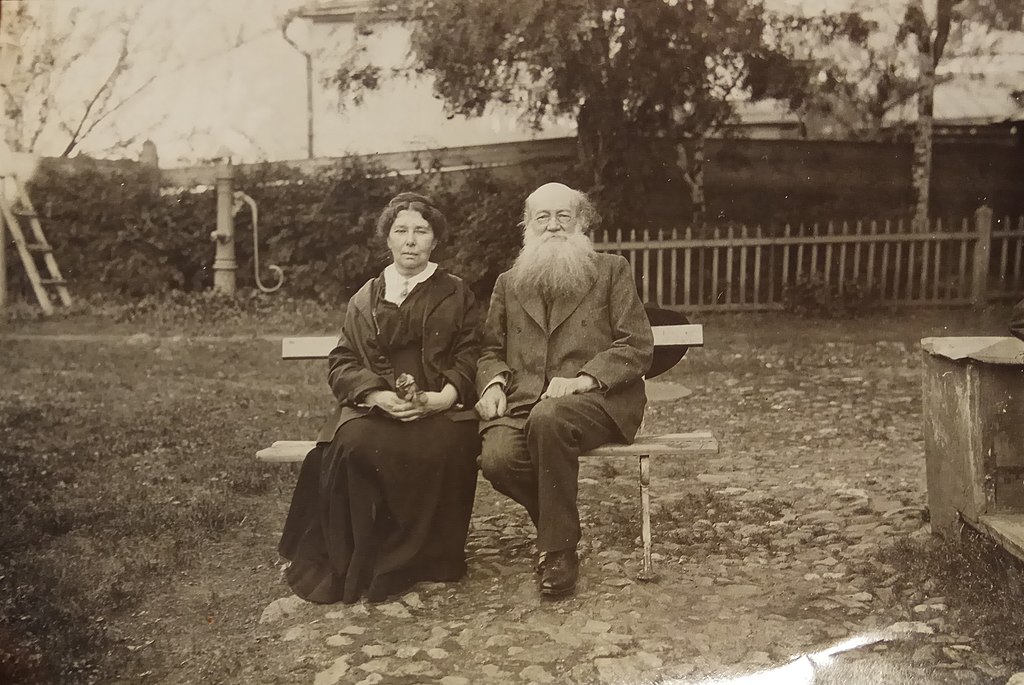In the latest issue of The New Criterion, Gary Saul Morson writes about Peter Kropotkin. Kropotkin was raised in an “ancient and highly privileged” Russian family, but he became disillusioned with the aristocracy and came to view serfdom as a great evil. He was recommended to a post in East Siberia early in his life. The five years he spent there, Morson writes, changed him:
When he arrived in Irkutsk, the capital of East Siberia, the spirit of reform reigned and the young governor-general was delighted to have a liberal on his staff. He assigned Kropotkin to outline reforms for the prisons and the system of Siberian political exile. By the time these proposals worked their way back to the centers of power, however, such reforms were no longer so welcome.
This failure led Kropotkin to reject all reforms as futile. That conclusion is all the more remarkable because no Russian ruler between Peter the Great and Lenin transformed the country more than Alexander II. I do not know whether the imperial rescript of February 19, 1861, proclaiming the liberation of the serfs—70 percent of the population—was, as some have called it, the most extensive legislative act in history, but it decisively changed more lives than any other tsarist reform. And that was only the beginning.
Following his conversion to radicalism, Kropotkin eventually traveled to Switzerland, “where he met Bakunin’s anarchist disciples, returned to Russia, joined the revolutionary Chaikovsky circle, was arrested, and staged a dramatic escape from a prison hospital. Arriving back in Europe, he agitated, found himself expelled from Switzerland and France, and at last settled in Britain, where this aristocrat was lionized and became friends with George Bernard Shaw and William Morris. Supporting himself with articles for scientific publications, he soft-pedaled agitation so as not to be expelled from this last country of refuge. Instead, he worked out the theoretical—he said ‘scientific’—basis of anarchism.”
Kropotkin is sometimes thought of as a humane terrorist. In his 1899 Memoirs of Revolutionist, Kropotkin wrote that the “question is how to attain the greatest results with the most limited amount of civil war, the smallest number of victims, and a minimum of mutual embitterment.” In reality, Morson writes, Kropotkin did little to limit violence:
In fact, Kropotkin never condemned anarchist violence, no matter how gratuitous. Even the worst, in his view, was an understandable reaction to oppression. At the London anarchist congress of 1881, he approved the use of chemistry to create bombs for “offensive and defensive purposes.” He financed anarchists returning to Russia to commit terrorist acts. While he cautioned his followers against violence “isolated from the masses,” he was “not afraid to proclaim, do whatever you like, act entirely accordance with your own discretion.”
In other news
The members of a wealthy ancient Israeli household suffered from “debilitating parasitic infections” a research team finds. Why? “While the palace residents lived in a luxury villa surrounded by a lush garden, they suffered from debilitating parasitic infections that gave them stomach aches, nausea, diarrhea and other ills. Langgut’s team described their findings in the International Journal of Paleopathology, along with a theory of why these infections may have been so widespread that everyone was affected.”
There will be no Picasso NFT after all, at least for now: “Pablo Picasso’s family is not selling a digital asset linked to one of his works after all. After a granddaughter and great-grandson of the artist trumpeted the upcoming sale, lawyers for the family said Thursday that his heirs have not authorized the launch of any such ‘Picasso NFT.’”
You remember that Damien Hirst diamond skull that sold for $100 million? Well, it didn’t: “According to Hirst, he still owns the bauble in partnership with his gallery, White Cube, and a group of unnamed investors.”
Harry Potter gets a trigger warning at the University of Chester, according to the Telegraph. Kyle Smith writes in National Review:
A spokesman for the university declined to elaborate to the Telegraph’s reporter, but since the book in question is hardly objectionable, this appears to be an example of another passive-aggressive attack on Rowling’s reputation driven by her public profile as a so-called “TERF.” The cultural establishment is increasingly intent on making Rowling look like a marginal or controversial figure for repeatedly stating that one can’t alter one’s sex via surgery and hormones, and that there are consequences to this fact. When HBO Max staged a reunion of people involved with the Harry Potter movies, Rowling herself was a notable omission from the guest list. The push to make Rowling a despised figure is well underway.
What reality TV says about us, Danielle J. Lindemann argues in True Story: What Reality TV Says about Us, is that everything in our lives is a construct. Christopher Scalia isn’t so sure: “RuPaul’s Drag Race shows that gender is a construct. Undercover Boss shows that class is a construct. The Real Housewives of Atlanta shows that race is a construct . . . She takes this argument to absurd lengths toward the end, when she uses as an example of people who ‘run amok of our norms’ (I think she means ‘run afoul’) a reality show personality who eats pillows.”
Jonathan Leaf reviews Lisa Miller’s The Awakened Brain: The New Science of Spirituality and Our Quest for an Inspired Life: “Miller looks at recent neuroscience dealing with brain health and plasticity. This provides her with an opportunity to inform the public about some rather startling examples of improvement seen on the neural MRI scans of people who say that they are spiritually engaged. In addition, she examines a number of the current theories about the etiology of depression: how it starts and why it can become chronic.”
A conversation with Tony Lyons of Skyhorse Publishing about why he picks up controversial books dropped by other publishers: “‘I’ve seen it with the Roth biography, with Allen and with Kennedy,’ says Lyons. ‘All you hear is the takedown of the author and no analysis of the book itself. Or the analysis gets obscured by the discussion of the author.’ On Apropos of Nothing, he says ‘whether you like Allen or not, it’s an interesting book and he’s had an interesting and culturally significant life. That should have been addressed. And that’s true for any of these books, even if you have a concern about the author or their perspective.’”


















